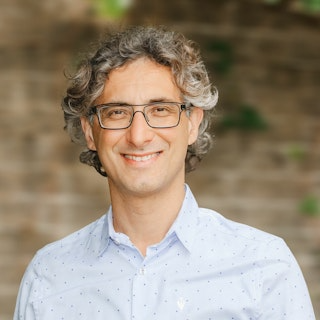by Guokai Sun
As more government documents being public, there are places with low transparency. How should investigative journalists react, especially in cross-boarder projects? Here is what Georg Neumann, Head of Communications from the Open Contracting Partnership says.
According to Georg, it is important to have government documents open. When taxpayers’ money turns into the services, goods and infrastructure that communities really need, where the money goes needs to be opened up for it to be accountable. “International crime and corruption is increasingly connected, and while public contracts are just one piece of it, they can provide a useful entry point.” Good news is that “many governments are publishing at least some open data about who they are doing business with… Freedom of Information requests are still the main way to find out more about public contracts. We need more timely, structured open data. We can do more to structure the information received by these requests.”
For small markets with a limited amount of companies engaged who just meet, talk and reach collective agreement to “keep prices high for a specific product or for a specific service”, Georg has the experience of combining simple questions like “who is buying what, from whom” and making a FOI request one by one, contract by contract to put pressure on some governments to publish the whole data set. Particularly he advices working with civil society organizations and adapting what he called “sandwich technique” to push the top government from bottom up and squeeze out those vested interests in the middle. Last but not the least, private sector interested in more competition can be a good source sometimes as well.
However, Georg has a clear awareness of the fact that “it is an area with a lot of money involved and a lot of entrenched networks where the powerful, especially in those countries where the powerful basically split up the pie amongst themselves. As soon as you steer in that or try and put a spotlight on it, you are at risk.” In that case, there are tricks in asking questions more indirectly. For instance, questions like “Every municipality should have a health centre of some sort. Do you have one? How does it look like? Wasn’t it supposed to be built at some point?” that sound like basic information gathering can sometimes lead to a credible database from where journalists can compare and see “if the same service or product or the same infrastructure project in another place costs something else or is done differently.”
As a coordinator, Georg has more than local legislation and language barrier to consider in cross-border programs and the general challenge is “to find the topic that works for everyone and the topic where you have enough data that works for everyone.”
As for journalists, Georg has one suggestion and one reminder:
- Getting networked: “you can’t do the investigations in the other country…especially when it comes to investigating corruption, investigating political issues, you need a network of people that you can rely on… that’s just one of the most important parts of building your skill set…everyone brings in an important element to the story and to the investigation itself. And especially when it you look at reporting beyond borders. You can’t really do it without a great network.”
- Do not over interpret the data: “Sometimes the data may tell you that there is something that is wrong, but it also could be that the information is just not there…There might be some things that are going on, that aren’t running the exact right course, but over-interpreting and calling everything corruption, I think that can be a problem too…Sometimes it’s just a lack of capacity.”
In his X account bio, it says “Transparency, data viz, open data, innovation, communication, development, the world.” and I think it is the best description for his career.
About Georg Neumann

Photo provided by Georg Neumann
Georg started his career as a journalist for a German online media start-up, which was new and full of promise then, and developed great communication skills with social media praised by many. He also contributed to a number of magazines and worked in Mexico and Morocco for some time before initiating Transparency International’s Young Journalists program and sharing insights on investigating public contracts and corruption using data, which is also the reason he joined Open Contracting Partnership where he focuses on coordination and communication in many investigations like the overpriced school notebooks in Nigeria, the innovation in using Instagram as the tool to uncover procurement, and the cooperation with La Contratopedia Caribe in Colombia in many projects.
